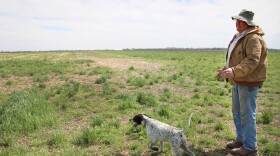
Eva Tesfaye
Eva Tesfaye is a 2020 Kroc Fellow. She started in October 2020 and will spend the year rotating through different parts of NPR.
She joined NPR after graduating from Columbia University with a B.A. in English and a minor in French and Francophone studies, where her studies focused on African literature and the history of French colonization. She also spent a year in Paris taking literature courses at the Sorbonne. During her time at Columbia, she reported for her campus radio station, WKCR.
She grew up moving around Africa and has lived in Uganda, Rwanda, Sudan, South Africa, and Kenya.
-
A new study from the U.S. Department of Agriculture found that the Special Supplemental Nutrition Program for Women, Infants and Children was underutilized. In 2021, it served only about half the number of people that qualified.
-
Community composting is growing across the country but problems arise as cities lag behind in regulations and zoning laws.
-
Thousands of competitors come to the American Royal Livestock Show in Kansas City, Missouri, each year to show their best livestock. The competition includes children as young as 7 years old, who take part in a long tradition of raising and showing their animals.
-
Food waste takes up space in landfills and produces methane, a powerful greenhouse gas that contributes to climate change. Composting that waste can reduce climate impacts and save municipalities money on landfill fees, but concerns about bad smells and pests sometimes get in the way.
-
A fifth of reported heat-related deaths between 2017 and 2022 were agricultural workers, according to OSHA data. Academics, occupational health specialists and advocacy groups are calling attention to the under-reported impact of climate change on this group from heatwaves.
-
A slowdown in the agricultural industry is "going to put a strain on farmers." But analysts say the rural economy in the Midwest and Great Plains is still doing well.
-
Congress expanded work requirements for food assistance during the debt ceiling negotiations, a move that would normally happen in the Farm Bill. Shortly before that, the state of Kansas made similar changes.
-
Tribes in the Midwest and Great Plains are embracing and sharing traditional agricultural knowledge with both Native and nonnative farmers to improve the soil and water for everyone.
-
Millets, an alternative crop to corn and soybeans, is getting new attention in the U.S. The resilient grain could help U.S. farmers survive climate change.
-
The United Nations has declared 2023 the International Year of Millets — a type of small grain mostly grown in parts of Asia and Africa. The highly resilient and cost-friendly grains could make them the next crop for U.S. farmers in the midst of climate change.








